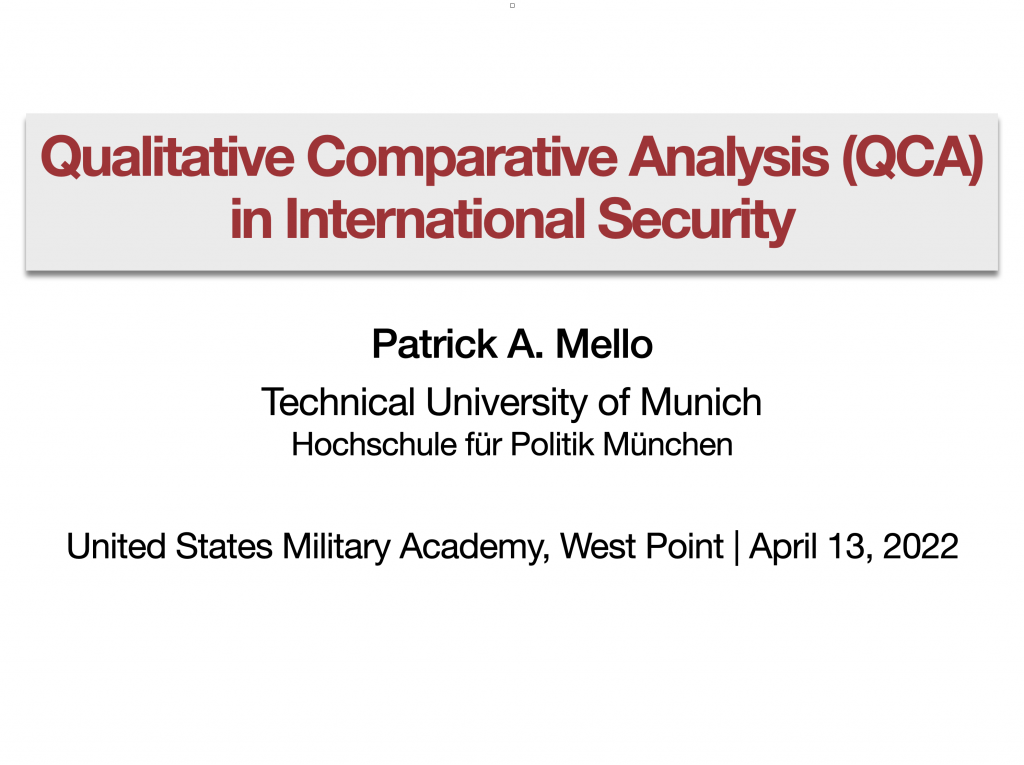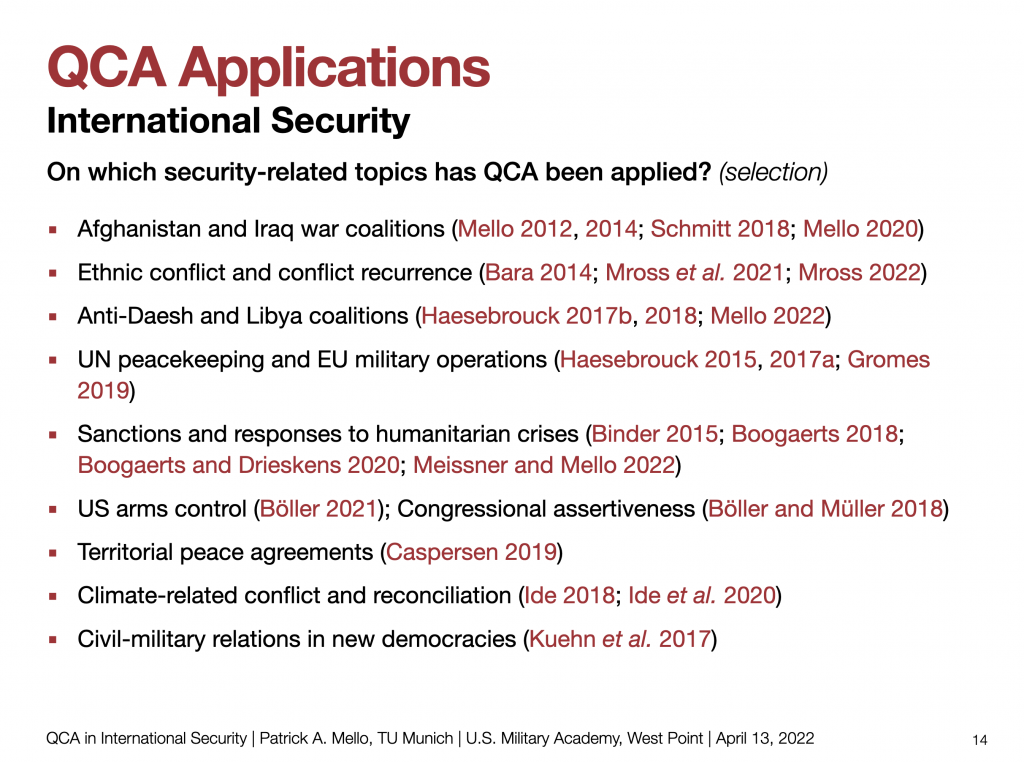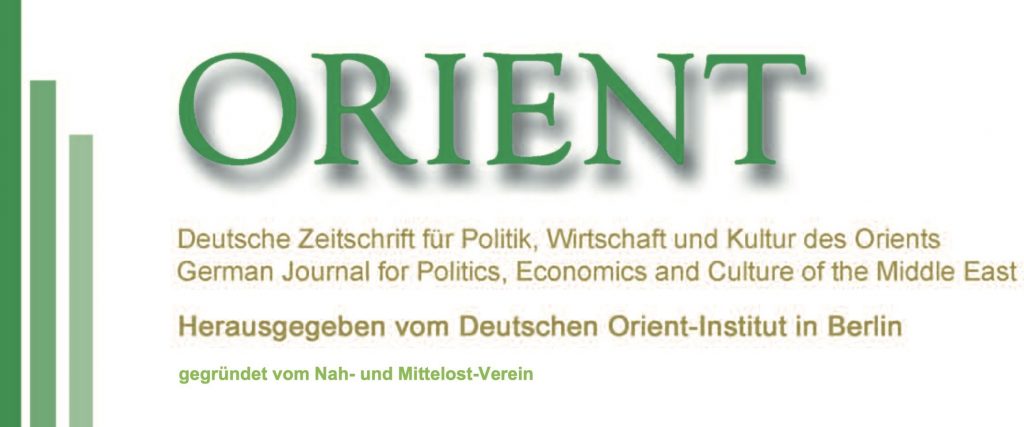On April 13, 2022 I gave a virtual guest talk on “QCA in International Security” at the Social Science Research Lab, Department of Social Sciences of the United States Military Academy at West Point. In recent years, QCA has seen an increasing number of empirical applications on security-related topics, and IR research at large. In my talk, I gave a concise introduction to the method and its application in the field, outlined the structure of my QCA textbook, and provided an illustration of how QCA has been used to analyze coalition defection in the Iraq War. Thanks to Jordan Becker, Director of the Social Science Research Lab, and his colleagues for the invitation and the fruitful discussion after the talk!


